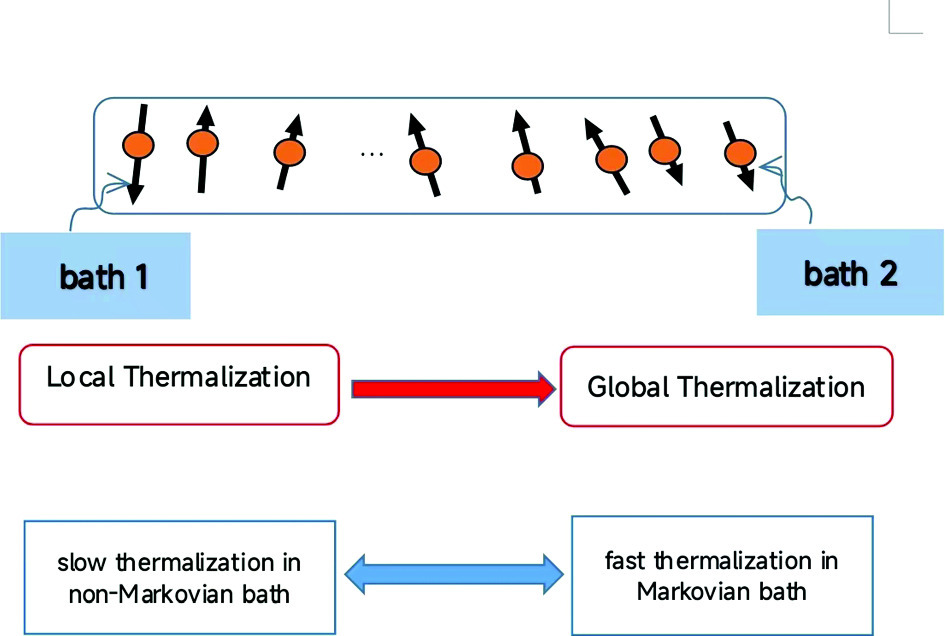https://doi.org/10.1140/epjd/s10053-023-00708-3
Regular Article – Quantum Optics
Local and global thermalization in non-Markovian open quantum system
1
Key Laboratory of Advanced Optoelectronic Quantum Architecture and Measurement, Ministry of Education, School of Physics, Beijing Institute of Technology, 100081, Beijing, China
2
School of Science, Tianjin University of Technology, 300384, Tianjin, China
3
School of Information and Electronic Engineering, Shandong Technology and Business University, 264005, Yantai, China
Received:
21
March
2023
Accepted:
17
June
2023
Published online:
27
June
2023
In this paper, we study thermalization of spin chains whose two end spins interact with two independent non-Markovian dephasing baths by the quantum state diffusion (QSD) equation approach. Up to now almost all of the studies about thermalization in an open quantum system focused on Markovian environment, while the effect of non-Markovian environment on thermalization is still elusive. Our results show that non-Markovianity of environments will delay thermalization. And moreover the effect of non-Markovianity is weakened by the non-integrability. For an isolated system, thermalization is seen in the subsystem states of system where the reduced density matrix of the subsystem follows quantum statistical mechanics. Different from the isolated system, for an open quantum system it is found that if the system evolves in the whole Hilbert space, thermalization can occur both locally and globally. Moreover, as long as global thermalization takes place, thermalization process consists of an early-stage local thermalization and a late-stage global one, which we name pre-local-thermalization (PLT) to distinguish it from pre-thermalization. And it is found that the integrability is beneficial for PLT. In addition, for the integrable system evolving in the whole Hilbert space, both local pre-thermalization and global pre-thermalization can be clearly observed in the presence of dephasing baths.
Copyright comment Springer Nature or its licensor (e.g. a society or other partner) holds exclusive rights to this article under a publishing agreement with the author(s) or other rightsholder(s); author self-archiving of the accepted manuscript version of this article is solely governed by the terms of such publishing agreement and applicable law.
© The Author(s), under exclusive licence to EDP Sciences, SIF and Springer-Verlag GmbH Germany, part of Springer Nature 2023. Springer Nature or its licensor (e.g. a society or other partner) holds exclusive rights to this article under a publishing agreement with the author(s) or other rightsholder(s); author self-archiving of the accepted manuscript version of this article is solely governed by the terms of such publishing agreement and applicable law.





